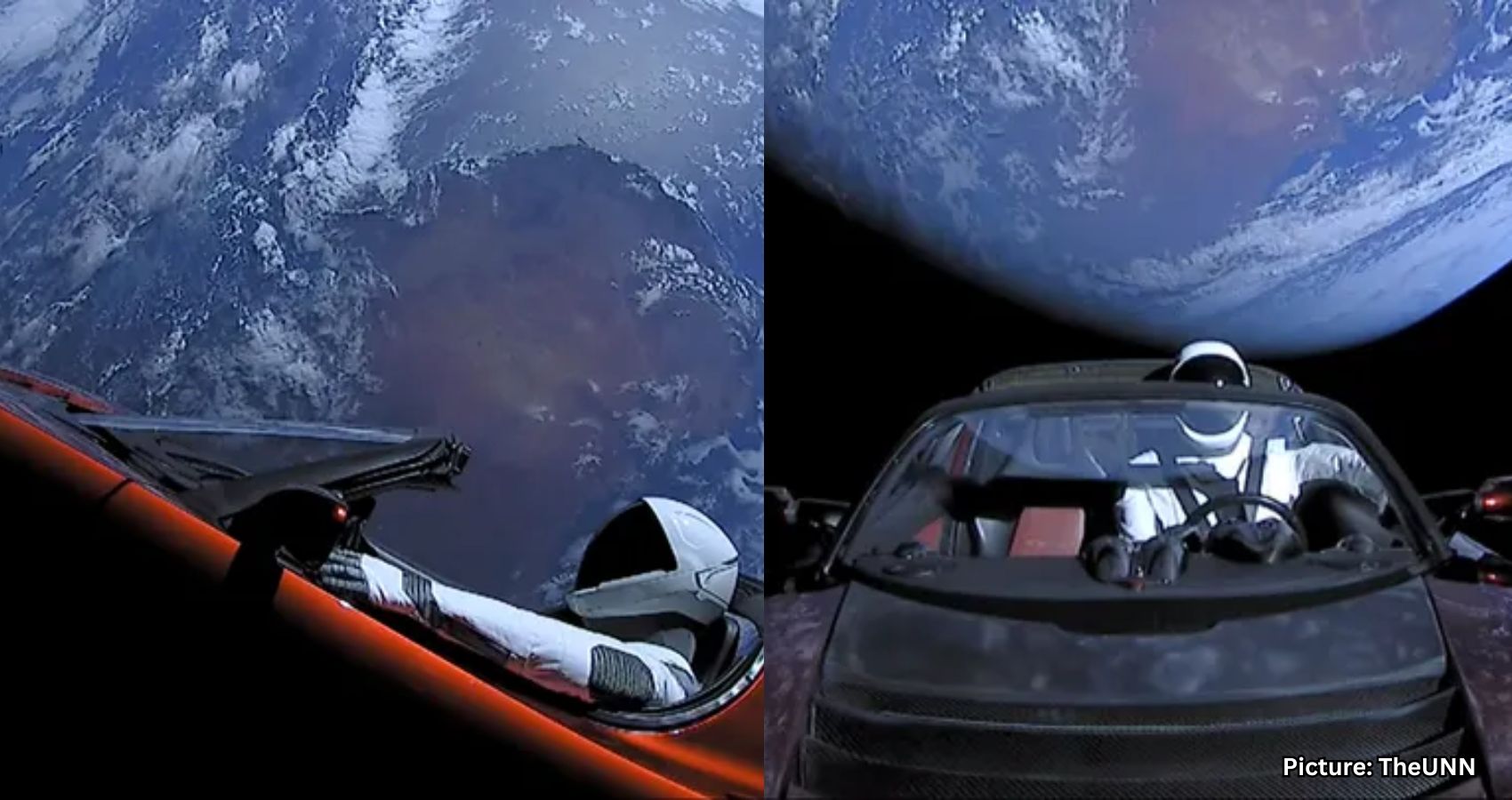Astronomers recently misidentified Elon Musk’s Tesla Roadster, launched into space in 2018, as an asteroid, leading to the deletion of its registry.
A curious incident occurred earlier this month when astronomers mistakenly identified a Tesla Roadster, launched into orbit by SpaceX in 2018, as an asteroid. The confusion arose when the Minor Planet Center at the Harvard-Smithsonian Center for Astrophysics registered the object, designated as 2018 CN41, only to delete the entry shortly thereafter.
The registration was removed on January 3, after it was determined that the orbit of 2018 CN41 closely matched that of an artificial object, specifically the Falcon Heavy upper stage carrying Musk’s roadster. The center announced on its website that the designation would be omitted, stating, “it was pointed out the orbit matches an artificial object, 2018-017A.” This incident highlights the complexities involved in tracking objects in space.
Elon Musk’s Tesla Roadster was launched during the maiden flight of SpaceX’s Falcon Heavy rocket in February 2018. Initially, the roadster was expected to enter an elliptical orbit around the sun, extending just beyond Mars before returning toward Earth. However, it appears to have exceeded Mars’ orbit and ventured further into the asteroid belt, as Musk indicated at the time.
When the roadster was misidentified as an asteroid, it was located less than 150,000 miles from Earth—closer than the moon’s orbit. This proximity raised concerns among astronomers about monitoring the object, as noted by Astronomy Magazine.
Jonathan McDowell, an astrophysicist at the Center for Astrophysics, commented on the implications of such errors. He remarked that the incident underscores the challenges of tracking unmonitored objects in space. “Worst case, you spend a billion launching a space probe to study an asteroid and only realize it’s not an asteroid when you get there,” he said.
The misidentification of the Tesla Roadster serves as a reminder of the complexities of space exploration and the importance of accurate tracking of objects in orbit. As technology advances and more objects are launched into space, the need for precise monitoring will only grow.
Fox News Digital has reached out to SpaceX for further comment regarding this unusual mix-up.
Source: Original article

